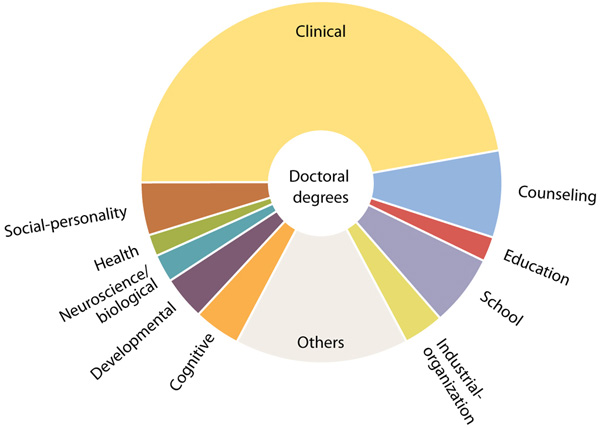Clinical psychology is the single largest subdiscipline in psychology. Clinical psychologists are concerned with the diagnosis and treatment of psychological disorders, whereas counseling psychologists are concerned more with problems of adjustment in "normal" lives. Counseling psychologists generally work with less severe psychological disorders than clinical psychologists. About half of all psychologists specialize in these two areas. Psychiatrists differ from clinical and counseling therapists in that they are trained as medical doctors and therefore, they can prescribe drugs.
|
To view the case of Kitty Genovese, probably the most famous case of bystander effect, click here. |
Social psychologists study the ways social context affects behaviors of both individuals and groups. They consider how the real or imagined presence of others influences thought, feeling, and behavior. They are interested in social roles, attitude formation, conformity, and group processes. Research on why crowds inhibit helping behaviors, known as the bystander effect, would be studied by social psychologists. |
Industrial and organizational psychologists study the relationship between individuals and work. I/O psychologists focus on training and development, productivity, and improving working conditions. I/O is one of the fastest growing subdisciplines in psychology.
Educational psychology examines how people learn, various teaching techniques, the dynamics of school populations, and the psychology of teaching.
Sports psychology examines the psychological factors in sports and exercise.
Forensic psychology is a combination of psychology, law, and criminal justice. Among other tasks, a forensic psychologist would evaluate the state of mind of a defendant at the time of a crime.

return to top | previous page | next page